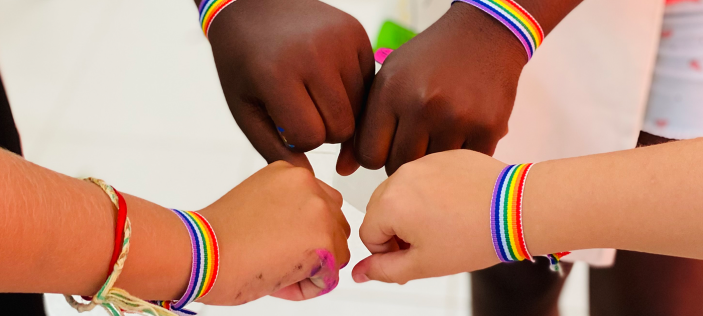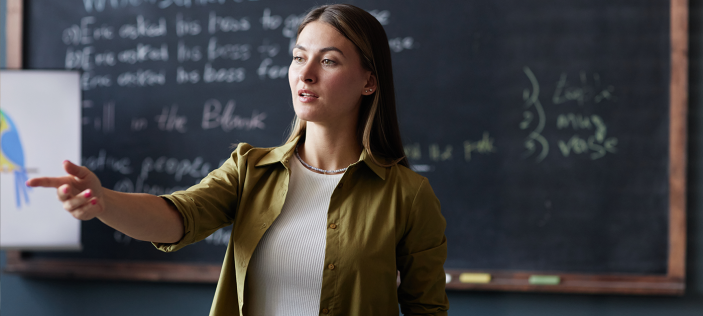Schools “shall not intentionally promote homosexuality or publish material with the intention of promoting homosexuality“.
Schools shall not "promote the teaching… of the acceptability of homosexuality as a pretended family relationship“.
How do those statements make you feel? Do you think that is reasonable?
In 1967, homosexuality was legalized in England and Wales. To me, this is shocking in itself – that homosexuality wasn’t legal until well after both of my parents had been born. You’d have thought this would be a turning point in history. In some respects it was, but progress is never straight-forward.
In 1988, Margaret Thatcher’s Conservative government enacted Section 28 (also sometimes referred to as Clause 28) to ‘prohibit the promotion of homosexuality by local authorities’. The statements at the beginning of this blog come from that piece of legislation. This meant that by law, teachers were not allowed to teach or talk about homosexual relationships.
At the time, Margaret Thatcher said: "Children who need to be taught to respect traditional moral values are being taught that they have an inalienable right to be gay. All of those children are being cheated of a sound start in life."
I would argue, that for those children who did grow up to be gay, this piece of legislation is what cheated them out of a sound start in life.
Shockingly, this legislation remained law until 2003. For me, and thousands like me, who went to school during this time and were gay, it meant that we could never be ourselves. We weren’t valid in society. We were second-class citizens. Although I didn’t really know I was gay until my mid-teens (because I didn’t have the vocabulary or knowledge to be able to articulate who I was due to lack of education), I always knew I was different somehow and I was ashamed. I spent the majority of my childhood feeling different from everyone else and feeling ashamed of who I was. I remember wishing that I could just be ‘normal’. Throughout my school life, I was bullied at various times and by the time I reached secondary school, I figured it was easier to keep quiet and keep my head down. To try not to stand out and to try and stay away from the majority of my peers who I perceived as threats at the time. I was still met with jeers and taunts regularly. Being called ‘gay’ as an insult was commonplace and it was accepted. This was life. This was normal. I wasn’t.
Even after Section 28 had been repealed, it left a legacy. In my second year of teaching, I remember being summoned to the Head’s office. He had been informed – by anxious parents – that there were rumours in the playground that I was gay. He stated that he had no problem with this at all, but advised me, very firmly, to keep my private life and my professional life separate. This issue was then never spoken of again. This was 2011 – eight years after section 28 had finally been repealed.
In retrospect, I’m angry. I’m livid. Throughout my life I was made to feel as if I were an embarrassment. I was made to feel like I was abnormal and, worst of all, I felt alone. However, I was also lucky: I had and still have a very loving and supportive family. I had good friends at school – without whom life could have been far worse. In fact, I probably owe far more to my friends and family then I could ever know. But what happened to the children who were not as lucky as me? I am sure that there were thousands of children during those years who were totally alienated from society, who felt abnormal, who felt ashamed and who felt alone. All this – in large part - from one piece of legislation which, in my opinion, caused more destruction than we can possibly imagine.
So you may be wondering, why raise this now? This is in the past – shouldn’t we focus on the future?
Well, yes, but the impact of Section 28, I would argue, still lives on. According to the Stonewall School Report of 2017:
- 45% of LGB students are bullied at school, including 64% of trans students
- 61% of LGBT+ young people have self-harmed
- 45% of young trans people have attempted to take their own life
- 53% of LGBT+ students say there isn’t an adult at school they feel they can talk to
Read the full report: The experiences of lesbian, gay, bi and trans young people in Britain’s schools in 2017
Although, undoubtedly, things are improving since the dark days of the 1980’s and 1990’s, it is clear that bullying is still commonplace and there is still far more we need to do – as educators – to support our young people. That may be an obvious statement to make and one which – I hope – the majority of people would agree with. However, we mustn’t underestimate the impact of section 28 on those who are now educators and identify as LGBTQ+ – people like me. We are the people who suffered its effects both during and beyond this time, and perhaps, for many of us, it left a greater mark than we would like to acknowledge.
Although, in many schools now (though not all), teachers are encouraged to be open and to be role-models, that is still a big step to take. When I was working in my last school, I was open with staff but I never came out to the children. I had a rule with myself for some time that if I was ever asked by a child directly, I would be honest, but no-one ever did. When I think back, that’s hardly surprising really – I’m not sure many primary aged children would ever ask their teacher outright whether they were gay. I often had children ask me whether I was married or whether I had a girlfriend and I never used that as an opportunity to open that discussion. Why? Because I was afraid. I wasn’t particularly afraid of what the children would say – I find most of them to be very open minded and accepting. Mostly I was afraid of parental reaction – they can be more of an unknown quantity. Do you remember the protests that originated in Birmingham in 2019 because of the No Outsiders project started by Andrew Moffat?
Read more about the Birmingham LGBT teaching row: How did it unfold?
To me, this shows that we still have work to do. If nothing else, this made me think that I have to get out of my comfort zone, stand up and be counted. There seems to be a much bigger swing towards the inclusion of LGBTQ+ people within the curriculum now from Early Years right the way through the education system. There are many more books which depict LGBT characters and the government have made it a requirement to teach about same-sex relationships in the new RSE curriculum. Finally, nearly 20 years since section 28 has been repealed, we are beginning to actively teach about LGBT+ people and validate the contribution they have made to society for generations. My hope is that with this increased visibility, more educators – like me – will feel able to stand up, be visible and become those role-models which we never had when we were at school. We now have the chance to usualise LGBTQ+ people and if we do that, surely we will have a much more tolerant and respectful society in the future. Books like ‘Big gay adventures in education’, edited by Daniel Tomlinson-Gray are of such huge help and comfort to people like myself – to know that we aren’t alone. However, as Daniel says in his chapter, ‘we need heterosexual allies if we are ever to reach a place where all LGBT+ young people can feel safe and included in their school communities’.
Section 28 has left an indelible mark on education. A shameful stain which has cost lives. However, things are changing and we all need to be brave. We need to bring about this change faster so that all young people feel safe and validated. No child should feel alone or abnormal because of who they are.


